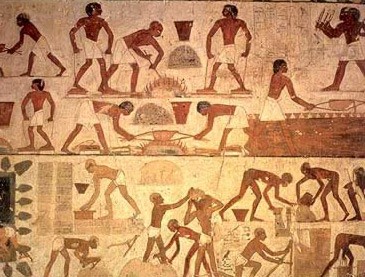The city of Pella Iowa was founded by Dutch Immigrants, who suffered from religious persecution in Holland by the state-sponsored church (Hervormde). Rev. (Dominie) Hendrik Scholte established an emigration society and led over 800 non-Catholic Christians to leave Holland and travel to America and settle there. After purchasing 18,000 acres in Iowa, they built their settlement and named it Pella, after the city of refuge that the Jerusalem Christians fled to when the Roman armies sieged Jerusalem in the first century.
The Christians who lived in Jerusalem at the time of the Jewish-Roman wars fled to the city of Pella because Jesus warned (Luke 21:20-24):
“When you see Jerusalem being surrounded by armies, you will know that its desolation is near. Then let those who are in Judea flee to the mountains, let those in the city get out, and let those in the country not enter the city. For this is the time of punishment in fulfillment of all that has been written. How dreadful it will be in those days for pregnant women and nursing mothers! There will be great distress in the land and wrath against this people. They will fall by the sword and will be taken as prisoners to all the nations. Jerusalem will be trampled on by the Gentiles until the times of the Gentiles are fulfilled.
Fourth-century historian Eusebius of Caesarea wrote:
“When the people of the church in Jerusalem were instructed by an oracular revelation delivered to worthy men there to move away from the city and to live in a city of Peraea, called Pella, the believers in Christ migrated from Jerusalem to that place.”
What do we know about the historic city that the Dutch named their new settlement after? Here are a few interesting facts:
- Pella was located 20 miles south of the sea of Galilee in the Jordan Valley.
- It was prominent during the Roman era and was one of the 10 cities of the Decapolis.
- Pella is a Greek word, meaning “stone”.
Many souvenirs portray the same pattern of persecution, exodus, and finding refuge. There are other similar stories in the Bible as well.
 One example is the Old Testament story of the Exodus from Egypt. When the Israelites came to Egypt through Joseph, they were invited, welcomed and honored. Later, new generations and Pharaohs rose up and enslaved the Israelites to make bricks (Exodus 1:8-14). God sent Moses to rescue His people from the oppression of Pharaoh (Exodus 3:8-9). After God sent the ten plagues, Pharaoh told Moses to go, worship the Lord, and he led them into the wilderness (Exodus 12:31-32). After 40 years, God brought them to the Promised Land.
One example is the Old Testament story of the Exodus from Egypt. When the Israelites came to Egypt through Joseph, they were invited, welcomed and honored. Later, new generations and Pharaohs rose up and enslaved the Israelites to make bricks (Exodus 1:8-14). God sent Moses to rescue His people from the oppression of Pharaoh (Exodus 3:8-9). After God sent the ten plagues, Pharaoh told Moses to go, worship the Lord, and he led them into the wilderness (Exodus 12:31-32). After 40 years, God brought them to the Promised Land.
Consider these other examples:
- Jeremiah warns the Israelite captives in Babylon to flee when he brings punishment against the city. (Jeremiah 51:6).
- Jesus warning the Pharisees of God’s wrath and calls all to repentance. (Matthew 3:7-8)
- Jesus tells his disciples to flee under persecution, causing the gospel to spread throughout Israel (Matthew 10:23).
Jesus calls us to “repent and believe in the gospel” (Mark 1:15). The call to repent is a call to turn away from our sin and put our trust in God. What about you, have you lied, stolen, or used God’s name in vain? We often think we are not as bad as others, but God compares us to His perfect law. Jesus asked, “do you think they were worse offenders than others?” and answered “No, I tell you, but unless you repent you will likewise perish” (Luke 13:3-5). We are children of God’s wrath (Ephesians 2:3) and deserve punishment.
The good news is, when you put your faith and trust in Christ, He makes you a new person. God gives you a new heart and a desire for Him, the old person who loved the things of this world is left behind and you are presented before God as holy and blameless because of Christ’s sacrifice (Colossians 1:21-22). Jesus, through His death, has appeased the wrath of God toward you because of your sin. You are reconciled to God by His grace (Ephesians 2:4-5,8-9) and will find refuge and rest in Him alone (Matthew 11:28-29).
 The Church’s Search and Rescue Mission
The Church’s Search and Rescue Mission
 Evangelism Interview with Eddie Roman: Defining Success in Evangelism
Evangelism Interview with Eddie Roman: Defining Success in Evangelism
 Tulip: The Beauty of God’s Grace
Tulip: The Beauty of God’s Grace
 Persecution Bill
Persecution Bill